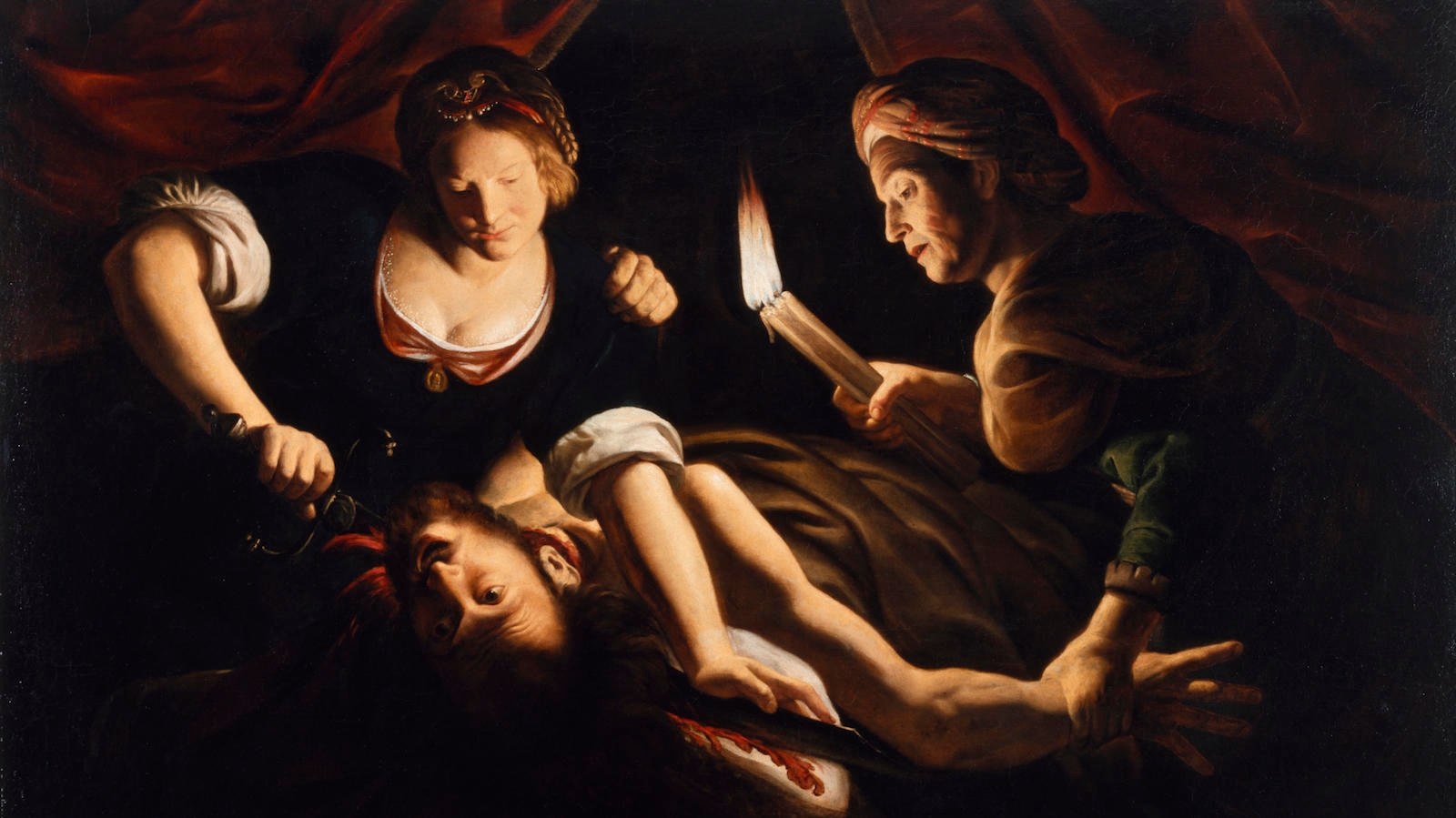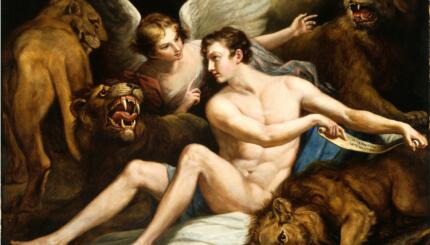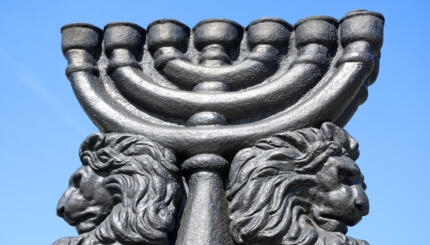Although Judah Maccabee and his father Matathias are the most famous characters in the Hanukkah story, the holiday also commemorates two Jewish women: Judith and Hannah.
The First Book of Maccabees and Second Book of Maccabees, which chronicle the story of the rebellion that inspired Hanukkah, were not included in the Bible, and are instead part of a body of texts known as the Apocrypha. Also in the Apocrypha is the Book of Judith, which tells how this heroine stopped the siege of Jerusalem by decapitating Holofernes, a major military leader for the enemy.
Like Esther, whose story did make it into the final redacted version of the Bible, Judith capitalized on her beauty: arriving at the enemy camp, she lured Holofernes into his tent, made him thirsty by plying him with salty cheese, then got him drunk. When he fell asleep or passed out, Judith murdered him with his own sword, then snuck back home, bringing along his severed head.
The second Hanukkah heroine, Hannah, appears in the Second Book of Maccabees. She martyrs herself (after watching her seven sons do the same) at the hands of the Greeks, who kill them for refusing to eat pork. In some versions of the story, Hannah is killed by the Greeks, while in others she commits suicide after the last son is killed. In all tellings, however, she is lauded for supporting and encouraging her sons to sacrifice themselves rather than violate Jewish law.
With your help, My Jewish Learning can provide endless opportunities for learning, connection and discovery.
Explore Hanukkah’s history, global traditions, food and more with My Jewish Learning’s “All About Hanukkah” email series. Sign up to take a journey through Hanukkah and go deeper into the Festival of Lights.
Hanukkah
Pronounced: KHAH-nuh-kah, also ha-new-KAH, an eight-day festival commemorating the Maccabees' victory over the Greeks and subsequent rededication of the temple. Falls in the Hebrew month of Kislev, which usually corresponds with December.



